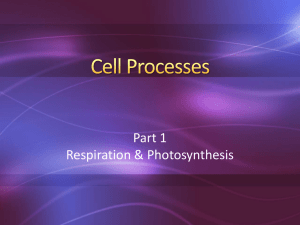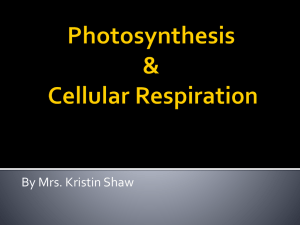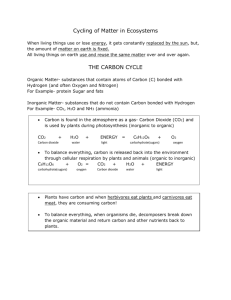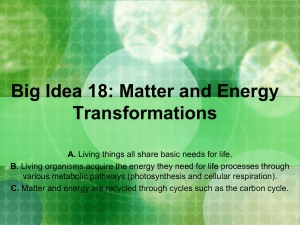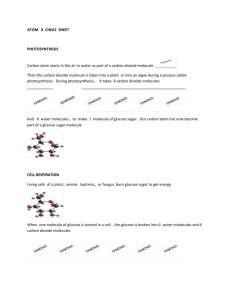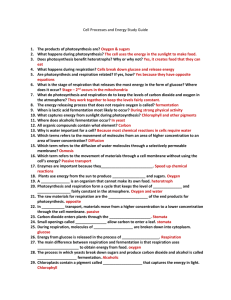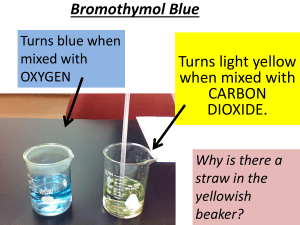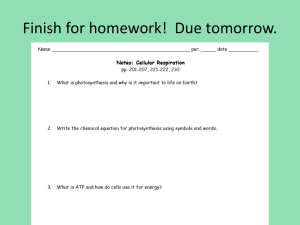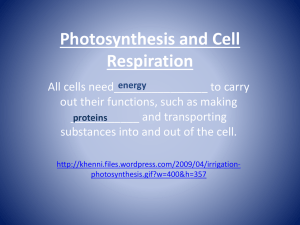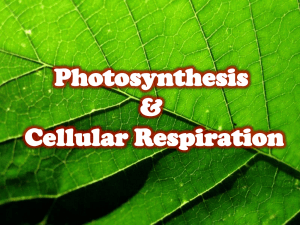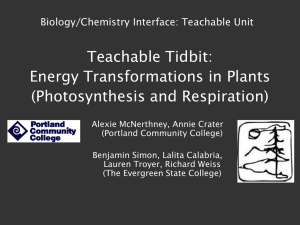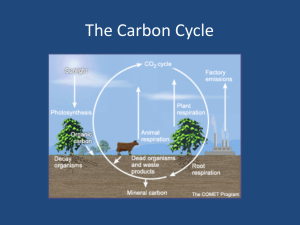Oxygen Cycle - Western Reserve Public Media
advertisement
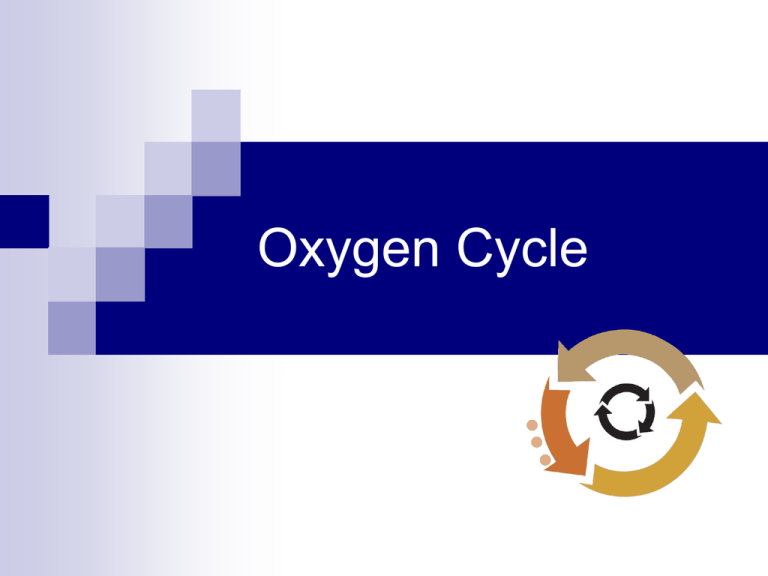
Oxygen Cycle Required for Life All living things use oxygen or depend on organisms that use oxygen in some way. All Animals and Other Consumers Use Oxygen We use oxygen to break down simple sugar and release energy. This can be done through respiration or fermentation. Animals mainly use respiration. Respiration The process that breaks apart simple food molecules to release energy. It occurs inside cells. What YOU do with the oxygen you take in. Simple Sugar — Glucose The molecule most living things use for energy — including us! We break down food into smaller molecules during digestion. One of the small molecules is glucose. Glucose leaves your intestines, goes into your blood and is taken to every cell in your body. Respiration in Cells In your cells, oxygen is used to split glucose apart — releasing energy, water and carbon dioxide. Photosynthesis Plants take in carbon dioxide and water and use them to make food. Their food is simple sugar — glucose. Photosynthesis (continued) Plants pull the carbon off CO2 and use the carbon in glucose. (They do not need the oxygen for this. They get that from water, H2O.) Plants release the oxygen (O2) back into the atmosphere. Other organisms use the free oxygen for respiration. How are photosynthesis and cellular respiration similar? Photosynthesis uses carbon dioxide and produces oxygen. Cellular respiration uses oxygen and produces carbon dioxide. Basic idea Rabbit gives off CO2, which is taken in by the plant. Rabbit eats food, breaks it down and releases CO2. Plant uses CO2 to make food. Plant gives off O2, which is taken in by the rabbit. Everywhere This happens on land and in the water. Algae and aquatic plants produce food underwater through photosynthesis. They use CO2 dissolved in the water. Other aquatic organisms use the dissolved oxygen these plants release into the water. Respiration Photosynthesis Kind of a C-on/C-off Cycle Plants take the carbon off the CO2, freeing the oxygen so it can be used for respiration. During respiration, organisms attach a carbon to the O2 and release CO2 so it can be used for photosynthesis. One big cycle — all living things depend on each other for it to work! Human Impact We keep destroying natural areas, especially forested areas with many plants and replacing them with buildings, parking lots, lawns, etc. Fewer plants mean less oxygen and more carbon dioxide. This disturbs the balance of the natural cycle. More Human Impact Every time something burns (combustion), more carbon dioxide is released into the atmosphere. We add more and more CO2 and destroy more and more of the plants that clean the air for us. What We Need to Do Stop destroying and promote regrowth of natural areas — especially forests. Burn less (fossil fuels, forest fires, etc.)
